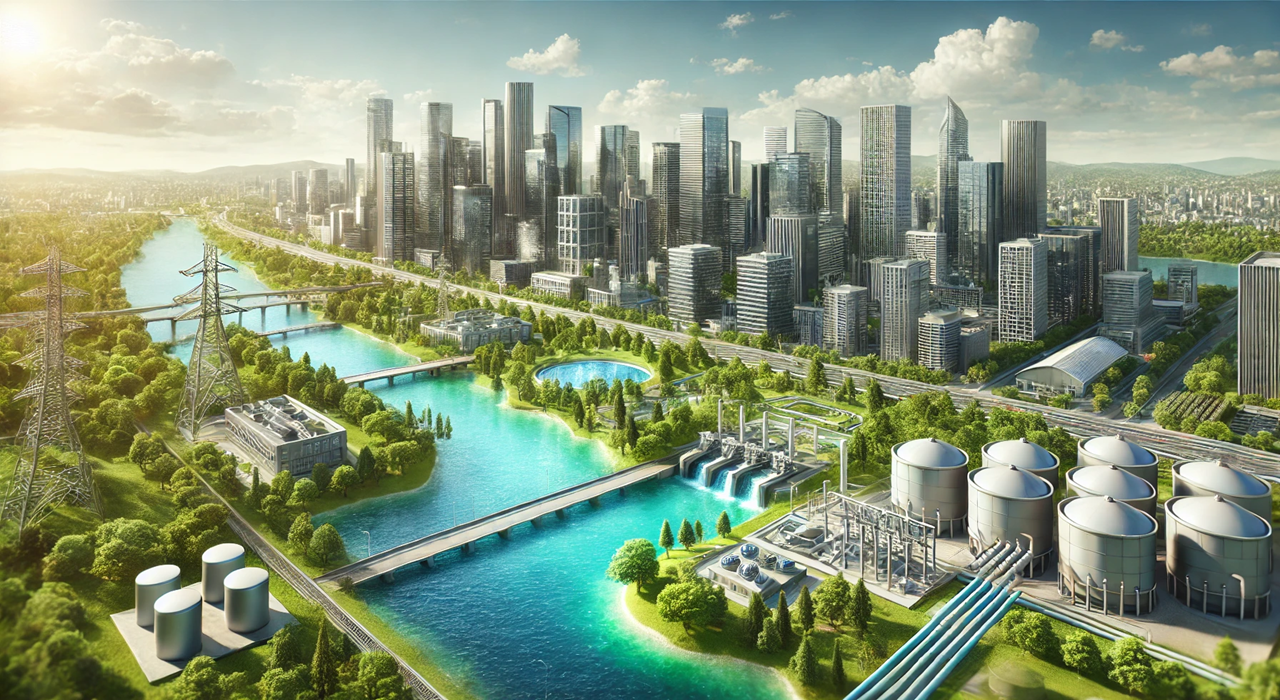Ensuring Water Security: How Cities Can Safeguard Their Future
As urban water scarcity intensifies, the Water for Cities report by WRG and the World Bank highlights strategies to build resilience. Through public-private partnerships and innovative solutions, cities like Bogotá, Gauteng, and regions in India are pioneering new approaches to secure their water future. This article explores key insights from the report and the urgent steps needed to safeguard urban water supplies.

Water for Cities: A Global Call to Action
In an era of increasing urbanization, water security has become one of the most pressing challenges cities face. According to the latest report, Water for Cities – Keeping Water in the Taps So Cities Can Thrive, published by the 2030 Water Resources Group (WRG) in collaboration with the World Bank Group, one in three cities globally is at high risk of water stress. The report underscores the urgent need for resilient water management strategies to ensure a sustainable supply amid growing demand, climate uncertainties, and resource limitations.
The Growing Threat of Water Scarcity
As urban populations expand, so does the water demand. Many cities are already grappling with dwindling resources and increasing pollution, making the efficient use of available water more critical than ever. The WRG report highlights the importance of fostering public-private partnerships to create long-term solutions that mitigate water crises. These partnerships bring together governments, businesses, and civil society to develop innovative approaches to urban water management, ensuring resilience for future generations.
Building Resilient Water Systems
To address the widening gap between water supply and demand, the WRG has launched initiatives aimed at improving urban water resilience. The Water Secure Cities Initiative is a key component, providing governments with integrated tools and strategic frameworks to proactively tackle water risks. The initiative focuses on four key areas:
Enhancing water efficiency to reduce wastage and optimize distribution.
Diversifying water sources through desalination, rainwater harvesting, and wastewater recycling.
Combating pollution to protect existing water bodies from contamination.
Strengthening governance to ensure accountability and effective implementation of water policies.
By leveraging these approaches, WRG is helping cities prioritize investments and implement scalable solutions that reinforce long-term sustainability.
Global Success Stories: Lessons from the Field
Bogotá, Colombia: Strengthening Urban Water Security
With a population of over 11 million, Bogotá relies heavily on its water infrastructure to support both residential and industrial needs. However, a growing gap between supply and demand has put the system under strain. In response, WRG has partnered with the city’s water utility and key stakeholders to develop a comprehensive water security strategy. A dedicated multi-stakeholder forum now facilitates collaboration between public institutions, businesses, and civil society to address critical water challenges and improve resilience.
Gauteng, South Africa: A Model for Water Sustainability
Gauteng, home to one-third of South Africa’s GDP and a quarter of its population, faces significant water shortages. To combat this, WRG established the Platform for a Water Secure Gauteng, which unites government officials, private sector leaders, and community representatives. The platform’s short-term goal is to reduce water demand by 10%, while simultaneously improving water distribution and management across the region. Additionally, innovative financing mechanisms are being explored to further strengthen supply security and sustainability.
India: Pioneering a National Blueprint for Water Management
In India, WRG played a pivotal role in formulating the National Blueprint for Water Accounting. This comprehensive framework aims to:
Enhance water use efficiency through improved monitoring and allocation.
Improve water quality management by enforcing stricter regulations.
Ensure sustainable funding for critical water infrastructure projects.
The blueprint has significantly improved transparency, accountability, and inter-agency coordination, setting a precedent for other nations seeking to enhance their water governance frameworks.
Looking Ahead: Securing Water for Future Generations
The Water for Cities report serves as a critical reminder that urban water security cannot be left to chance. Cities must adopt proactive, data-driven policies that address both immediate and long-term water challenges. By embracing collaborative governance, technological innovation, and sustainable investment models, cities can safeguard their water resources and ensure reliable access for future generations.
The WRG continues to work with governments, corporations, and communities worldwide to tackle water risks, reinforcing the message that water security is not just an environmental necessity—it is an economic and social imperative.
- FIRST PUBLISHED IN:
- Devdiscourse










